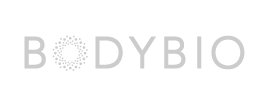Part 1 – Understanding methylation & nutritional co-factors
Masterclass part 1 will explain what methylation is, and how methylation changes in the body can impact health. This session will introduce the metabolic pathway and basic biochemistry involved. A broad overview of methylation and the necessary foundations will be provided, before diving deeper into key genes and nutritional cofactors in the upcoming masterclasses.
By the end of the class attendees will:
- Confidently know what the term methylation means
- Be able to differentiate between DNA methylation (relating to epigenetics) and biochemical methylation (relating to hormones, neurotransmitters, chemicals, etc)
- Be able to identify key components of the methylation metabolic pathway
Part 2 – Folates and gene-nutrient interactions within the methylation cycle
Masterclass part 2 will provide a detailed exploration into folates, including folic acid, methyl-folate and folinic acid. In addition, choline, vitamin B12 and homocysteine related genes will be identified, which impact methylation and various health outcomes that can occur across the lifespan ranging from fertility through to healthy ageing.
By the end of the class attendees will:
- Understand the difference between the various forms of folate and have clarity on how they are used by the body
- Become aware of the various gene–nutrient interactions and key cofactors that support folate and B vitamin related genes
- Be able to identify the key genes that impact choline, vitamin B12 and homocysteine levels
Part 3 – Practical applications, clinical assessment and management with personalised nutrition
Masterclass part 3 will focus on testing and prescribing to balance methylation and address health concerns.
By the end of the class attendees will:
- Know when to consider investigating methylation
- Understand the benefits and limitations of Nutrigenomic testing (genetic profiling to identify susceptibility)
- Understand the importance of assessing diet, lifestyle and environmental factors along with genetic profiling
- Become aware of symptoms and biochemical markers associated with methylation imbalance
- Have confidence developing a personalised nutrition and management plan to address specific health goals












































